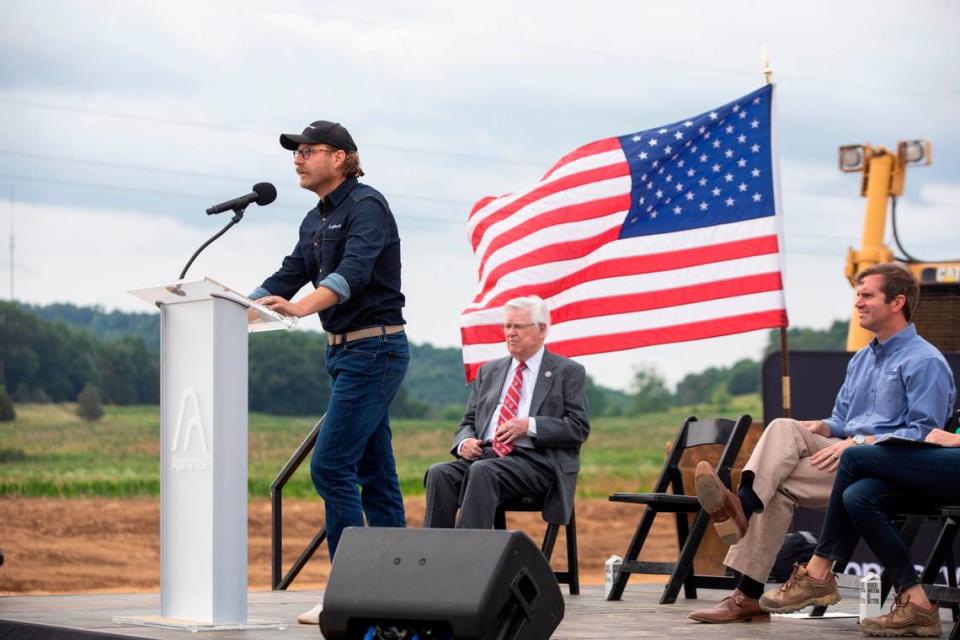High-tech greenhouse company AppHarvest announces two more Kentucky sites
AppHarvest, the company working to create indoor food-growing facilities in Kentucky, wants to have 12 sites producing vegetables and fruits by the end of 2025.
New locations announced Monday in Pulaski and Rowan counties will put the company nearly halfway there.
Jonathan Webb, founder and CEO of the company, said AppHarvest will build a 30-acre, high-tech greenhouse near Somerset to grow strawberries and a 15-acre greenhouse in Morehead to produce leafy greens.
“We’re building, building, building,” Webb said during a news conference at the greenhouse site in Pulaski County, a few miles from Somerset in a farm field adjacent to an industrial site.
AppHarvest started shipping tomatoes earlier this year from a 60-acre, 2.76 million-square-foot greenhouse in Morehead, and is working on two greenhouses in Madison County that will grow leafy greens and vine crops, so the two sites announced Monday would bring the company to five.

The company plans to finish building the additional greenhouses in Pulaski and Rowan counties by the end of 2022.
U.S. Rep. Hal Rogers, a Republican from Somerset, recalled first meeting Webb several years ago at a conference in Pikeville hosted by Shaping Our Appalachian Region (SOAR), where Webb was promoting his idea to make Kentucky a leader in indoor food production.
It was a big idea, but AppHarvest is making good on it, Rogers said.
The company now has just over 500 employees, most of them at the giant Morehead greenhouse.
The greenhouse in Pulaski County is projected to have at least 100 employees. Judge-Executive Steve Kelley said he understood employment could be as high as 200.
“As AppHarvest expands efforts to farm for our future, they are also inspiring a new generation of ingenuity and stellar work ethic that will benefit our region for generations to come,” Rogers said.
Gov. Andy Beshear said at Monday’s event in Pulaski County that AppHarvest represents an opportunity for Kentucky to develop a network of suppliers, in the same way that the Toyota Motor Manufacturing plant in Georgetown has spurred the development of scores of supplier plants.
“This is truly our chance at that next Toyota,” Beshear said.
Imports of strawberries to the U.S. have increased 70 percent in the last four years. There is an opportunity for AppHarvest to replace some of those imports, Webb said.

“This community is at the forefront of bringing agriculture back to the U.S.,” Webb said.
AppHarvest planned to build its first greenhouse on a reclaimed surface coal mine near Pikeville, but ultimately said the land wasn’t stable enough for the building.
The company hasn’t announced any facilities since then in the heart of Appalachian Kentucky, which has been hurt by a steep drop in coal jobs.
However, Webb said Monday that the company still wants to build facilities in the area.
“We want to be deep in Southeastern Kentucky,” he said.
AppHarvest uses recycled rainwater to grow vegetables and fruit with 90 percent less water than field agriculture, producing more food with fewer resources, according to the company.

 Yahoo Movies
Yahoo Movies 
